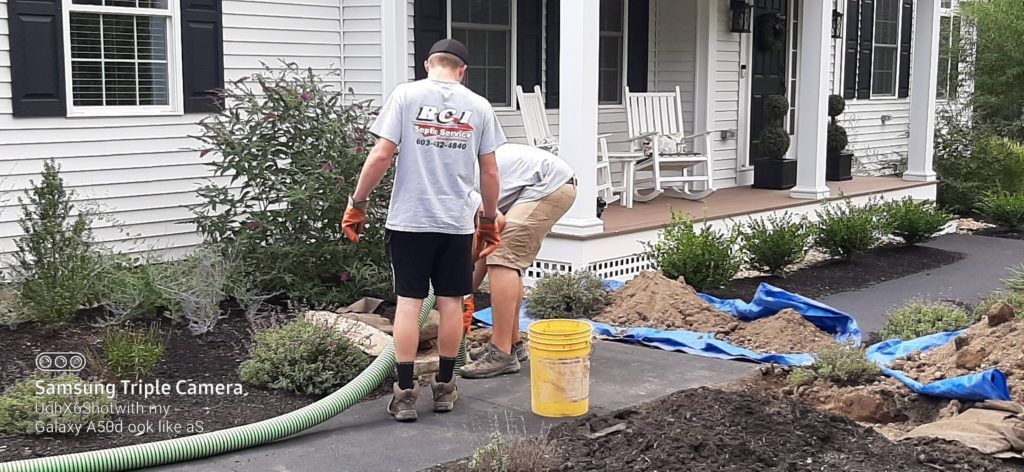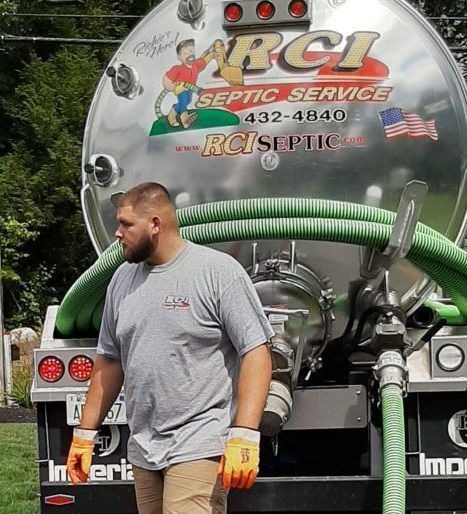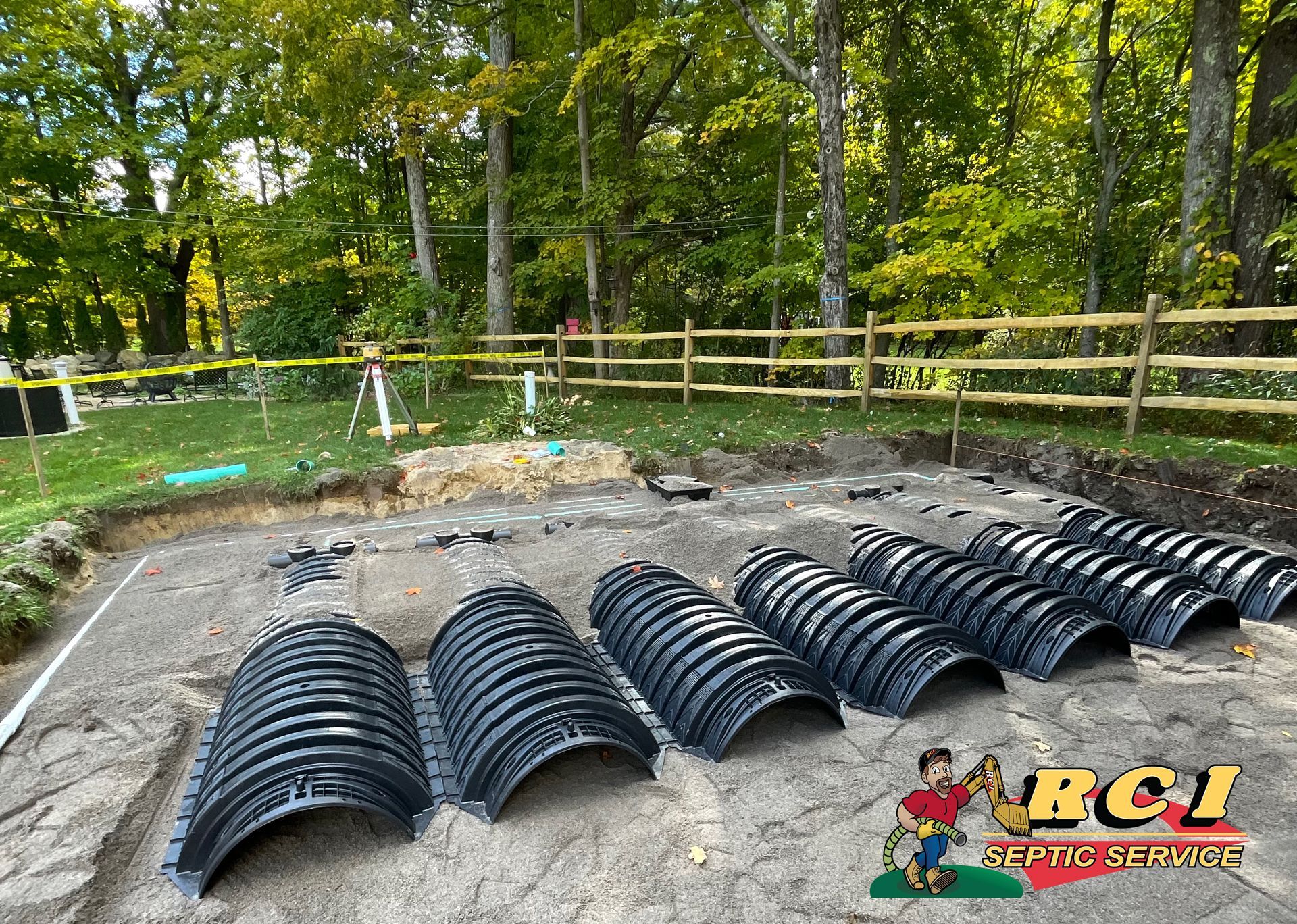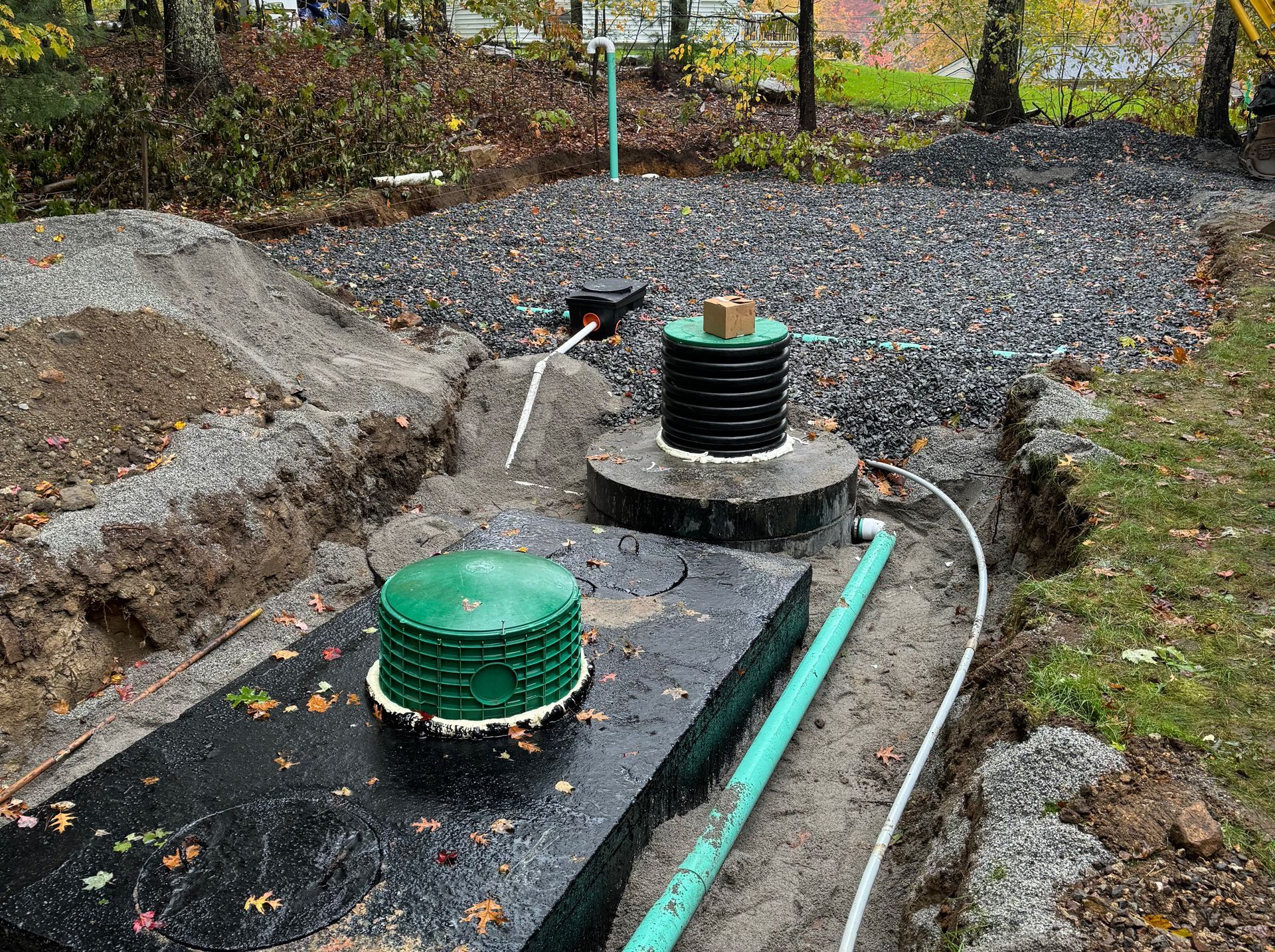How Often to Drain Septic Tank: Essential Guide for Homeowners
How often to drain a septic tank? Generally, it is recommended every one to three years. Factors like household size, tank size, and water usage can affect this schedule. This guide explains these factors and signs that your tank needs pumping. Read on for essential maintenance tips and expert recommendations on how often to drain septic tank effectively.
Key Takeaways
- Septic tank pumping frequency varies based on household size, tank size, and water usage; typically recommended every 1-3 years.
- Signs indicating a need for septic tank pumping include slow drains, foul odors, and sewage backups; prompt attention can prevent costly repairs.
- Regular maintenance extends septic system lifespan, prevents system failures, and protects water quality; professional inspections are advised at least every three years.
Understanding Septic Tank Pumping Frequency
Regular septic tank pumping is crucial for proper functioning, waste management, and system longevity. The frequency at which you need to pump your septic tank depends on several factors, including household size, tank size, and water usage. Typically, septic tank pumping depends on specific household needs, and septic tanks are pumped every one to three years, but this can vary based on specific household needs.
By understanding these factors, you can create an effective pumping schedule and avoid the unpleasant consequences of an overfilled tank.
Household Size
The size of your household significantly influences how often you need to pump your septic tank. Larger households produce more waste, which means more frequent pumping is necessary. Households with one to two people should typically pump their septic tanks every three years.
In contrast, larger families will need more frequent services to manage the increased waste production and treat waste.
Tank Size
The size of your septic tank significantly impacts the pumping frequency. Larger tanks can hold more waste and, therefore, may require less frequent pumping. Common septic tank sizes include 1,000, 1,250 and 1500 gallons. A larger tanks are installed when there are more bedrooms in the home.
Water Usage
Your household’s water usage directly affects how often your septic tank needs pumping. Higher water usage can strain the septic system and lead to more frequent pumping needs.
Water-saving fixtures and practices can extend your septic system’s lifespan and prevent leaks, clogs, and backups. Spreading out laundry days and using high-efficiency toilets can make a significant difference.
Since one person uses about 82 gallons of water per day, effective management is crucial for maintaining a healthy septic system.

Signs Your Septic Tank Needs Pumping
Recognizing when it’s time to pump your septic tank is vital to preventing system failure. Slow drains, foul odors, and sewage backups are clear indicators that your septic system needs attention. Ignoring these signs can lead to severe problems and costly repairs.
Slow Drains
Slow-draining sinks and bathtubs can be a clear indicator of problems within your septic system. Common signs include water pooling around drains, gurgling sounds, and repeated clogs. If you notice slow drains, it could signal a full septic tank, necessitating prompt pumping to avoid further issues.
Quickly addressing slow drainage issues can prevent more serious septic system failures and costly repairs, especially if they affect the drain field.
Foul Odors
Foul odors around the house or yard often indicate septic system issues. These unpleasant smells can significantly impact the quality of life at home, making environments uncomfortable. Persistent foul odors can signal issues such as a full septic tank, which may lead to system failure if not addressed.
Homeowners noticing foul odors should consider having their septic system inspected and pumped as part of regular maintenance.
Sewage Backups
Sewage backups in toilets and drains are a clear sign that the septic tank is full and needs immediate attention. Raw sewage backing up into household pipes is a clear and serious indicator of a full septic tank.
If you experience sewage backups, immediate action is necessary to prevent further damage to your septic system.

Benefits of Regular Septic Tank Maintenance
Routine maintenance of your septic tank safeguards against costly failures and ensures proper waste treatment. Consistent pumping helps avoid costly repairs and extends the lifespan of the septic system. Regular inspections by a professional can identify potential issues before they escalate into serious problems.
Regular pumping decreases the likelihood of costly repairs and ensures the system operates efficiently. By monitoring sludge and scum levels and the sludge layer, you can prevent backups and maintain system efficiency.
Here are the specific benefits of regular septic tank maintenance.
Prevents System Failures
Unpleasant smells around the house can indicate that raw sewage is leaking from an overfilled septic tank. Consistent septic tank pumping prevents costly repairs and system failures. A full septic tank can lead to inefficiencies and severe problems, such as sewage backups, which require expensive repairs.
Extends System Lifespan
Regular maintenance can significantly enhance the longevity of your septic system. RCI Septic Service emphasizes the importance of consistent upkeep to prolong the life of septic systems.
Regular maintenance can enhance a septic system’s life expectancy by preventing damage from backups.
Expert Recommendations for Septic Tank Pumping
Households should pump their septic tank every one to three years based on size and usage. Routine septic tank maintenance helps avoid hazardous conditions and costly cleanups, while professional inspections at least every three years monitor sludge and scum levels.
Here are specific recommendations based on household sizes to help maintain an efficient septic system.
Households with One to Two People
Smaller households typically require septic tank pumping every three years. Adjusting the pumping schedule based on water use and lifestyle helps manage the system efficiently.
RCI Septic Service recommends pumping septic tanks every three years for households of one to two people.
Households with Three to Four People
Households with three to four individuals typically need to pump their septic systems every two years. Regular maintenance is crucial for efficient operation and prevention of system failures.
RCI Septic Service recommends pumping septic tanks every two years for households of three to four people.
Households with Five or More People
Larger households are recommended to pump their household septic tanks annually for optimal performance. Yearly pumping maintains effective waste processing and prevents system overload.
RCI Septic Service recommends yearly septic tank pumping for households of five or more people.

Tips for Efficient Septic System Maintenance
Maintaining an efficient septic system involves more than just regular pumping. Proper practices prolong the life of your system and prevent costly repairs. Here are some practical tips to keep your septic system running smoothly.
Efficient water use, proper waste disposal, and regular inspections are key aspects of effective septic system maintenance. These tips help ensure your system remains functional and efficient.
Use Water Efficiently
High-efficiency toilets significantly cut household water use, minimizing strain on septic systems. Waiting until you have a full load before running the washing machine and spreading laundry loads throughout the week can help the septic system manage wastewater effectively.
Adjusting the washing machine load size reduces water usage going down the drain.
Proper Waste Disposal
Maintaining a healthy septic system requires proper solid waste disposal practices. These practices are essential for its effective functioning. Avoid flushing non-biodegradable items down the drain, as they can clog the system. A garbage disposal can increase the solids in the septic tank by as much as 50%. This may result in clogging and backups.
Regular Inspections
Regular professional inspections are crucial for maintaining a functional septic system. These inspections monitor sludge and scum levels, preventing overflow and system failures. Consistent inspections not only safeguard against major repairs but also prolong the lifespan of the septic system.
Hiring Professional Septic Services
Hiring a professional septic service ensures your specific maintenance needs are assessed for optimal pumping frequency. Certified professionals possess the expertise and appropriate equipment for effective septic system maintenance and pumping.
Seek septic service companies offering a comprehensive range of services, including septic pumping, installation, and repair. Choosing a service provider focused on reliable and eco-friendly septic solutions offers homeowners peace of mind.
Choosing the Right Service Provider
Seek recommendations from trusted sources and verify the provider’s credentials to ensure reliability. A reliable septic service provider should demonstrate industry experience and have positive customer reviews.
Asking about the company’s operational history can help gauge its experience and reliability.
Questions to Ask Your Septic Professional
Certified professionals are crucial for proper septic system maintenance. Inquire about potential service providers’ certifications and experience in the field. Inquire about the specific services they offer and their maintenance recommendations.
Request to see customer reviews or testimonials to assess their past work quality.
Summary
Regular septic tank maintenance is essential to keep your household running smoothly and avoid costly and unpleasant issues. Understanding the factors that influence septic tank pumping frequency, such as household size, tank size, and water usage, helps you create an effective pumping schedule. Recognizing signs like slow drains, foul odors, and sewage backups ensures you can address problems promptly.
Adopting efficient water usage practices, proper waste disposal, and regular inspections can significantly enhance the longevity and efficiency of your septic system. Hiring certified professionals for regular maintenance and pumping services guarantees that your septic system remains in top condition. By following these guidelines, you can ensure a healthy and functional septic system for years to come.
Frequently Asked Questions
How often should I pump my septic tank?
It is advisable to pump your septic tank every one to three years, although this can vary based on household size, tank capacity, and water usage. Regular maintenance ensures optimal function and prevents costly issues.
What are the signs that my septic tank needs pumping?
If you notice slow drains, unpleasant odors, or sewage backups, these are clear indicators that your septic tank requires pumping. Addressing these signs promptly is essential for maintaining your system's health.
Why is regular septic tank maintenance important?
Regular septic tank maintenance is crucial as it prevents system failures, extends the lifespan of the septic system, and safeguards water quality. Neglecting maintenance can lead to costly repairs and environmental hazards.
How can I use water efficiently to maintain my septic system?
To maintain your septic system efficiently, utilize high-efficiency toilets, stagger your laundry loads, and choose biodegradable products. This approach reduces water usage and minimizes strain on the system.
What should I consider when hiring a septic service provider?
When hiring a septic service provider, prioritize finding a certified professional who has a strong reputation, extensive experience, and positive customer feedback to ensure quality service. Proper vetting will help safeguard your investment and home.


